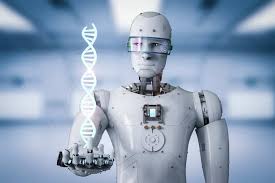Source: indianexpress.com
The RAISE 2020 summit (Responsible AI for Social Empowerment) has brought issues around artificial intelligence (AI) to the centre of policy discussions. Countries across the world are making efforts to be part of the AI-led digital economy, which is estimated to contribute around $15.7 trillion to the global economy by 2030. India, with its “AI for All” strategy, a vast pool of AI-trained workforce and an emerging startup ecosystem, has a unique opportunity to be a major contributor to AI-driven solutions that can revolutionise healthcare, agriculture, manufacturing, education and skilling.
AI is the branch of computer science concerned with developing machines that can complete tasks that typically require human intelligence. With the explosion of available data expansion of computing capacity, the world is witnessing rapid advancements in AI, machine learning and deep learning, transforming almost all sectors of the economy.
India has a large young population that is skilled and eager to adopt AI. The country has been ranked second on the Stanford AI Vibrancy Index primarily on account of its large AI-trained workforce. Our leading technology institutes like the IITs, IIITs and NITs have the potential to be the cradle of AI researchers and startups. India’s startups are innovating and developing solutions with AI across education, health, financial services and other domains to solve societal problems.
Machine Learning-based deep-learning algorithms in AI can give insights to healthcare providers in predicting future events for patients. It can also aid in the early detection and prevention of diseases by capturing the vitals of patients. A Bengaluru based start-up has developed a non-invasive, AI-enabled technology to screen for early signs of breast cancer. Similarly, hospitals in Tamil Nadu are using Machine Learning algorithms to detect diabetic retinopathy and help address the challenge of shortage of eye doctors. For the COVID-19 response, an AI-enabled Chatbot was used by MyGov for ensuring communications. Similarly, the Indian Council of Medical Research (ICMR) deployed the Watson Assistant on its portal to respond to specific queries of frontline staff and data entry operators from various testing and diagnostic facilities across the country on COVID-19. AI-based applications have helped biopharmaceutical companies to significantly shorten the preclinical drug identification and design process from several years to a few days or months. This intervention has been used by pharmaceutical companies to identify possible pharmaceutical therapies to help combat the spread of COVID19 by repurposing drugs.
AI-based solutions on water management, crop insurance and pest control are also being developed. Technologies like image recognition, drones, and automated intelligent monitoring of irrigation systems can help farmers kill weeds more effectively, harvest better crops and ensure higher yields. Voice-based products with strong vernacular language support can help make accurate information more accessible to farmers. A pilot project taken up in three districts — Bhopal, Rajkot and Nanded — has developed an AI-based decision support platform combined with weather sensing technology to give farm level advisories about weather forecasts and soil moisture information to help farmers make decisions regarding water and crop management. ICRISAT has developed an AI-power sowing app, which utilises weather models and data on local crop yield and rainfall to more accurately predict and advise local farmers on when they should plant their seeds. This has led to an increase in yield from 10 to 30 per cent for farmers. AI-based systems can also help is establishing partnerships with financial institutions with a strong rural presence to provide farmers with access to credit.
An AI-based flood forecasting model that has been implemented in Bihar is now being expanded to cover the whole of India to ensure that around 200 million people across 2,50,000 square kilometres get alerts and warnings 48 hours earlier about impending floods. These alerts are given in nine languages and are localised to specific areas and villages with adequate use of infographics and maps to ensure that it reaches all.
The Central Board of Secondary Education has integrated AI in the school curriculum to ensure that students passing out have the basic knowledge and skills of data science, machine learning and artificial intelligence. The Ministry of Electronics and Information Technology (MeitY) had launched a “Responsible AI for Youth” programme this year in April, wherein more than 11,000 students from government schools completed the basic course in AI.
As AI works for digital inclusion in India, it will have a ripple effect on economic growth and prosperity. Analysts predict that AI can help add up to $957 billion to the Indian economy by 2035. The opportunity for AI in India is colossal, as is the scope for its implementation. By 2025, data and AI can add over $500 billion and almost 20 million jobs to the Indian economy.
India’s “AI for All” strategy focuses on responsible AI, building AI solutions at scale with an intent to make India the AI garage of the world — a trusted nation to which the world can outsource AI-related work. AI solutions built in India will serve the world.
AI derives strength from data. To this end, the government is in the process of putting in place a strong legal framework governing the data of Indians. The legislation stems from a desire to become a highly secure and ethical AI powerhouse. India wants to build a data-rich and a data-driven society as data, through AI, which offers limitless opportunities to improve society, empower individuals and increase the ease of doing business.
The RAISE 2020 summit has brought together global experts to create a roadmap for responsible AI — an action plan that can help create replicable models with a strong foundation of ethics built-in. With the participation of more than 72,000 people from 145 countries, RAISE 2020 has become the true global platform for the exchange of ideas and thoughts for creating a robust AI roadmap for the world.


